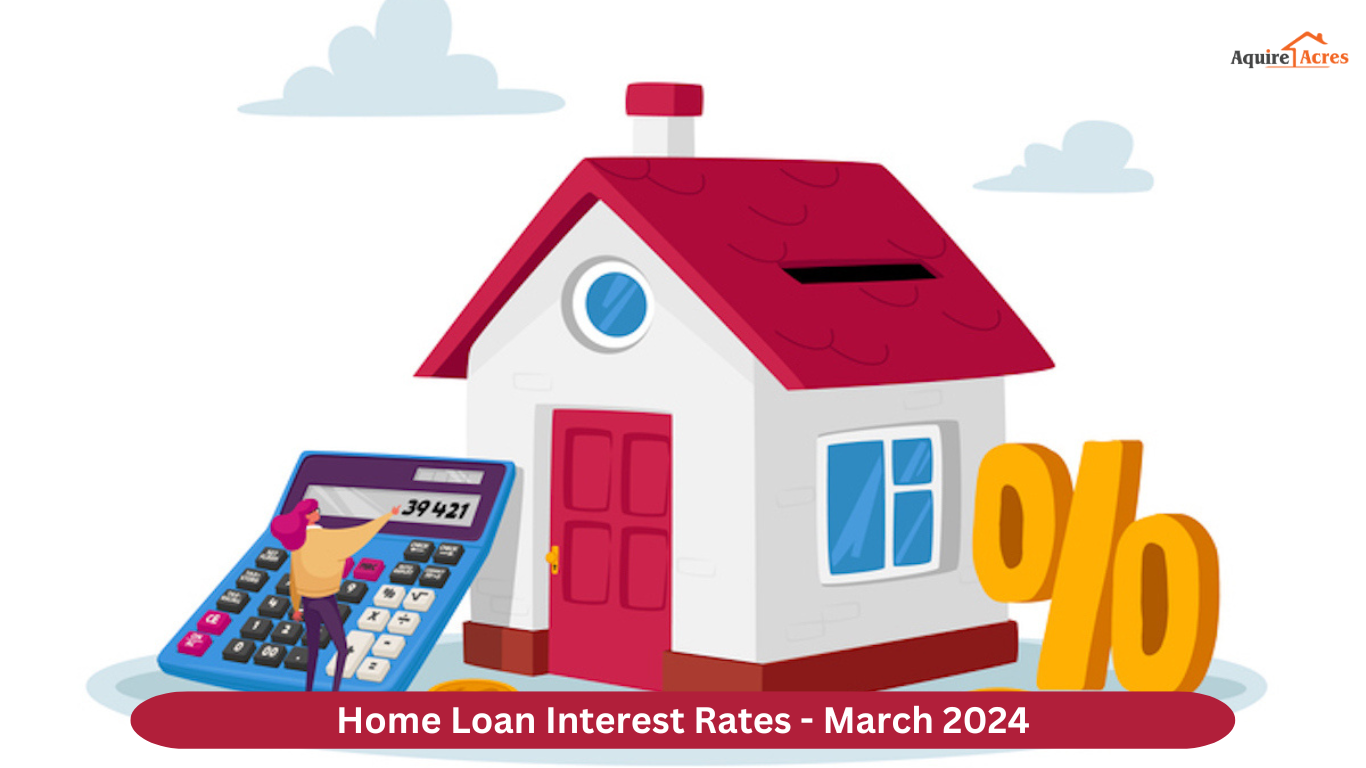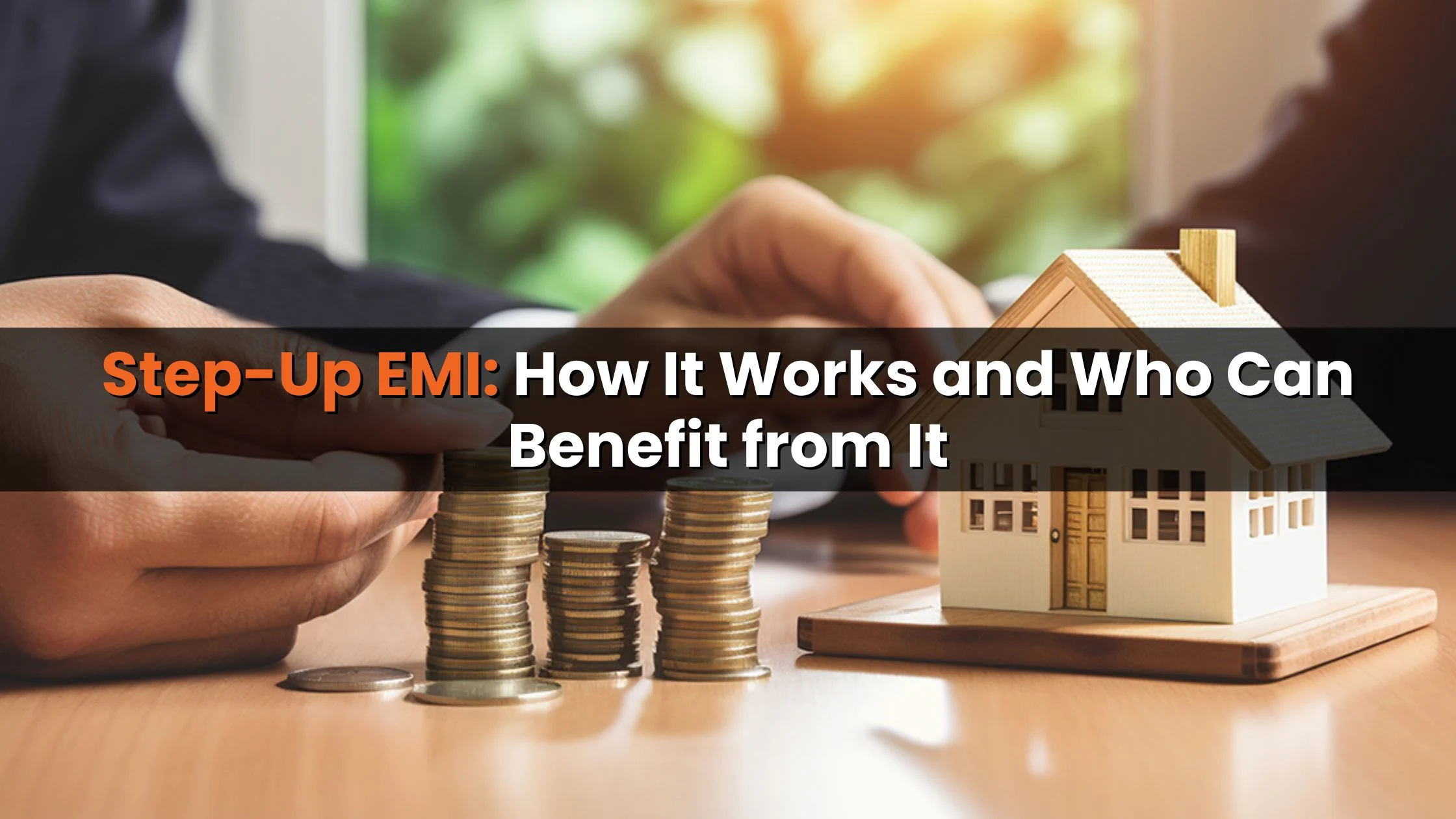Table of Content
▲
Home Loan Interest Rates
It's advisable for prospective home loan applicants to review the prevailing interest rates offered by various lenders before proceeding with their application. Even minor discrepancies in interest rates can significantly impact the borrower's overall repayment burden.
In this discussion, we've outlined the present home loan interest rates provided by all banks in India, along with explanations on how to compute them.
Home Loan Interest Rates of All Banks 2024
Here is the list of home loan interest rates 2024 for all the banks in India:
Private Sector Banks
|
Name of Lender |
Current Home Loan Interest Rate |
|
Axis Bank |
8.75% – 12.70% |
|
Karur Vysya Bank |
9.23% – 12.13% |
|
Karnataka Bank |
9.26% – 10.53% |
|
ICICI Bank |
9.00% – 10.05% |
|
Tamilnad Mercantile Bank |
9.10% – 9.60% |
|
Kotak Mahindra Bank |
8.85% onwards |
|
Bandhan Bank |
9.15% – 15.00% |
|
Federal Bank |
10.15% – 10.30% |
|
South Indian Bank |
9.85% – 12.60% |
|
RBL Bank |
9.15% – 11.55% |
|
Dhanlaxmi Bank |
9.35% – 10.50% |
Public Sector Banks
|
Name of Lender |
Rate |
|
Punjab & Sind Bank |
8.85% – 9.95% |
|
Punjab National Bank |
8.65% – 9.50% |
|
State Bank of India |
9.15% – 10.15% |
|
Indian Overseas Bank |
9.55% – 10.95% |
|
Bank of India |
9.25% – 10.75% |
|
UCO Bank |
8.45% – 10.30% |
|
Bank of Maharashtra |
8.40% – 10.65% |
|
Canara Bank |
8.85%- 11.25% |
|
Bank of Baroda |
9.15% – 10.65% |
|
Indian Bank |
8.45% – 10.40% |
|
Union Bank of India |
9.00% – 10.75% |
Foreign Banks
|
Name of Lender |
Housing Loan Interest Rate |
|
Citibank |
8.45% onwards |
|
Standard Chartered |
8.75% onwards |
|
HSBC |
8.60% onwards |
HFCs
|
Name of Lender |
Home Loan Interest Rate in India |
|
HDFC Ltd. |
8.50% – 10.70% |
|
Tata Capital Housing Finance |
8.95% onwards |
|
LIC Housing Finance |
8.90% – 10.75% |
|
Bajaj Housing Finance |
8.70% onwards |
|
PNB Housing Finance |
8.50% – 14.50% |
|
Repco Home Finance |
9.60% onwards |
|
Indiabulls Housing Finance |
8.75% onwards |
|
L&T Housing Finance |
8.60% onwards |
|
GIC Housing Finance |
8.45% onwards |
|
ICICI Home Finance |
9.20% onwards |
|
Aditya Birla Capital |
8.80% – 14.75% |
|
Godrej Housing Finance |
8.64% onwards |
Types of Home Loans Interest Rates
There are three types of home loan interest rates: fixed, floating, and hybrid.
- Fixed Rate Interest Rate - Opting for a fixed interest rate ensures that the home loan's interest remains unchanged throughout its duration, thereby maintaining a steady EMI. When current home loan interest rates are relatively low and projected to rise, choosing a fixed interest rate is advisable.
- Floating Interest Rate - A variable or floating interest rate is influenced by prevailing market lending rates and can vary throughout the loan period. Consequently, the EMIs for home loans may rise or fall in accordance with fluctuations in interest rates.
- Hybrid Interest Rate - Hybrid home loan interest rates blend both fixed and floating rates, initially offering a fixed rate for a set duration before transitioning to a variable rate. These rates are ideal for customers seeking a low fixed rate at the outset and planning to prepay or close the loan before the floating rate period commences.
How to Apply for a Home Loan?
Here is the step-by-step process for a home loan application:
Step 1: Fill out the Home Loan Application Form
The process of obtaining a home loan begins by filling out the home loan application form. One must fill in the following details while submitting the application form:
- The applicant's personal information (Name, Phone number, etc.)
- Residential or current address.
- Monthly income of the applicant.
- Educational background.
- Current and previous employment details.
- The details of the property for which the housing loan will be applied.
- The estimated cost of the property.
- The current method of financing the home.
Step 2: Verification and Processing
Upon submission of the required form and documents, the bank initiates the processing of your Home Loan application, meticulously examining your credit score. Hence, maintaining a positive credit history is crucial. It is imperative to provide accurate information during the application process, as any inaccuracies could result in the rejection of your loan application.
Step 3: Loan Sanction
The bank will verify all documents submitted during the application process before proceeding further. Typically, if the paperwork is deemed accurate, verification can take 1-2 days, sometimes even less.
In specific cases, the bank may require the applicant to attend an in-person verification before approving the loan. This step is undertaken to gather additional information about the application and to confirm the applicant's ability to repay the loan along with interest.
Step 4: Technical and Legal Check
Before releasing the loan funds, the bank conducts both legal and technical assessments. Representatives from the bank will verify the property for which you've applied for a loan. If the property is still under construction, they will inspect the progress and quality of the work.
During the technical assessment, bank representatives will evaluate the actual value of the property, taking into account its status (whether under construction or up for sale).
For resale properties, the bank will consider factors such as the property's age and maintenance. Additionally, they may investigate whether the property has been mortgaged previously. Ownership rights will also be scrutinized to ensure there are no discrepancies in the provided documents.
Step 5: Payment of Home Loan Processing Fee
After successfully verifying the paperwork and legal check, the applicant will have to pay the home loan processing fee to the bank. This processing fee is collected to maintain the loan account of the applicant.
Usually, the processing fee for a home loan ranges from 0.25 % to 0.50 % of the loan amount.
For example, suppose you have applied for a home loan of Rs. 15 lahks, then you will have to pay a processing fee of Rs. 3,750 (at 0.25%) and Rs. 7,500 (at 0.50%), respectively.
Step 6: Disbursal of Loan Amount
Upon satisfying all eligibility criteria, you will reach the concluding stage of the home loan application process. Subsequently, you will receive a formal agreement letter, and upon its receipt, the loan amount will be disbursed into your bank account. Additionally, a comprehensive home loan EMI schedule will be sent to your registered email address.
Methods to Calculate Home Loan Interest Rate
There are two major methods for the calculation of the housing loan interest rate, and they are:
a) Home Loan Interest Rate Formula for All Bank Calculations
This is a manual form of calculation, and the below-mentioned formula is used:
[P x r x (1+r)^n]/[(1+r)^n-1]
Here, p = Principal, R = Rate, and n = term.
b) EMI Calculator for the Current Home Loan Interest Rate Calculations
This is an online EMI calculator that is used to calculate the interest rate, monthly EMI, and total payable amount. You can find an EMI calculator option on your Bank's online website. You will have to enter these details to calculate your monthly EMI:
- Rate of Housing Loan Interest Rate
- Total Loan Amount
- Total Tenure for Loan Repayment
Factors Affecting the Housing Loan Interest Rates
The following are the factors that determine your home loan eligibility and the final housing loan interest rates that will be offered:
- Employment and Income: Your home loan eligibility hinges on factors such as your salary, employment type, and the profile of your employer, all of which lenders take into account. Thus, it's crucial to furnish accurate employment information to ensure successful verification.
- Interest Rate Type: The interest rate you select for your home loan plays a significant role in determining the pace at which you can repay your lender. With fixed-rate home loans, EMIs remain consistent throughout the loan duration. Conversely, floating rates vary in response to fluctuations in lending rates, such as the Repo Linked Lending Rate (RLLR). Lenders typically impose higher interest rates on fixed-rate home loans due to the increased interest rate risk associated with them.
- Loan Amount: The desired loan amount can also impact the interest rate applicable to your home loan. Typically, home loans up to Rs. 30 lakhs tend to attract lower interest rates compared to larger loan amounts.
- Credit Score: Your credit score, also known as the CIBIL score, reflects your credit history. Timely payment of EMIs contributes to maintaining a favorable credit score. A credit score of 750 or above increases the likelihood of securing a housing loan. Numerous banks and HFCs provide home loans at lower interest rates to individuals with superior credit scores.
You must check all the eligibility conditions before applying for a housing loan. You should go through the current home loan interest rates of all the banks and decide accordingly. You can also visit any bank branch in your city and seek professional assistance to get the options and offers available.



_1772441702.webp)





Ans 1. Depending on the stages of completion of a housing project, a house loan may be disbursed in tranches. Borrowers may be compelled to service the interest cost incurred on the disbursed loan amount until the final disbursement of the loan amount. This is referred to as Pre-EMI interest. Pre-EMI interest is charged monthly from the initial disbursement date until the start of EMI.
Ans 2. Yes, the home loan procedure from any bank has a verification step. It involves verification of your employment details, educational background, current address and the property details for which the loan application will be processed.
Ans 3. You can get a home loan by filling out the home loan application of any bank. You must enter all the details accurately. If your profile gets approved after background verification, documentation and credit score check, you will be contacted by the branch for further proceeding with the loan approval.
Ans 4. Yes, you can change your interest rate from fixed to floating. Lenders often charge a conversion fee of 0.5% of the outstanding principal for changing your fixed interest rate to a floating rate.
Ans 5. If all the details provided by you are accurate, then for salaried individuals, it usually takes 4-5 business days after approval to get your housing loan disbursed. For self-employed individuals, it might take 7-8 business days for disbursement.